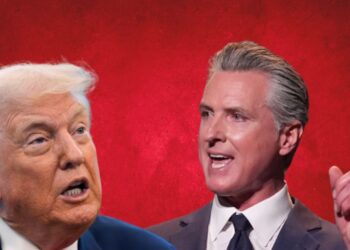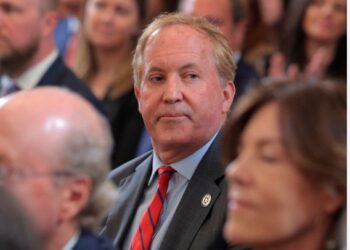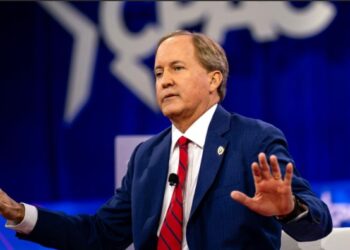In a lively Friday discussion, Peter McIlvenna, host of the Hearts of Oak podcast, and Ben Harnwell, acting host of the WarRoom, two UK broadcasters, delve into the burgeoning global populist movements. They examine the recent UK election results, the dynamics of populist leaders, and the alignment of these movements on critical issues such as illegal immigration and the much-needed re-election of President Donald Trump.
Both men expressed strong concerns about Western civilization’s current state and future. They argued that it is at a critical juncture, facing numerous challenges that threaten its core values and stability.
“Western civilization is not a geographical expression but a global force for good. It is the source of our deepest values and most cherished principles—liberty, democracy, human rights, and the rule of law. In defending Western civilization, we defend the very foundation of our free societies and the essence of what makes us who we are,” Harnwell said.
McIlvenna highlighted the need to revive Western civilization’s foundational principles, emphasizing the importance of national sovereignty, cultural identity, and economic independence. He stressed that populist movements across Europe and the United States are vital in addressing these issues and resisting globalist agendas that undermine national interests.
Harnwell echoed these sentiments, pointing out that leaders like Donald Trump, Nigel Farage, and other populist figures are crucial in defending Western civilization against external and internal threats. He emphasized the role of these leaders in promoting policies that safeguard national borders, support traditional values and prioritize the well-being of their citizens over internationalist goals.
Both McIlvenna and Harnwell agreed that Donald Trump’s re-election would be a pivotal moment for Western civilization. They argued that Trump’s leadership could inspire and strengthen populist movements globally, leading to a more cohesive and resilient Western world.
This, they suggested, would be essential in countering the challenges posed by rising authoritarianism, unchecked immigration, and the erosion of cultural and national identities.
In the WarRoom, McIlvenna and Harnwell highlighted the significant shift in the UK political landscape after the surprising election of Fraage on Thursday, noting the implosion of the Tory party’s vote and the resurgence of populist sentiment.
“The Tory vote absolutely imploded,” McIlvenna states, pointing out that this collapse reflects a broader rejection of the national center-right politics.
Harnwell agrees, adding that this marks a new paradigm in British electoral politics, much like the rise of Farage and the Reform Party, which has captured the disillusionment of many voters.
McIlvenna critically observed the disconnection between the government and the electorate. “Our government is with one-fifth of the voting population saying we want them,” he notes, emphasizing the lack of genuine support for the ruling party.
This sentiment is echoed in the rise of populist movements across Europe, where leaders like Marine Le Pen in France, Viktor Orbán in Hungary, and Georgia Meloni in Italy are gaining traction by addressing similar issues of national identity, immigration, and economic sovereignty.
The discussion turns to the charismatic leadership of figures like Farage and Trump. McIlvenna highlights Farage’s unique ability to engage with the public, describing him as a “charismatic leader who engages with the people and has got the party where they are in six weeks.” This rapid rise mirrors Trump’s influence in the United States, where his populist rhetoric and policy positions resonate with a significant portion of the American electorate.
Trump’s influence on the global populist movement is undeniable. Harnwell notes that “Donald Trump sent a message of congratulations to Nigel Farage,” highlighting the transatlantic connection between these leaders. Their shared vision of challenging the political establishment and advocating for policies prioritizing national interests further solidifies this relationship.
The conversation also touches on the broader implications of these populist movements. McIlvenna suggests that the success of populism in Europe and the UK could be a precursor to Trump’s potential re-election in November.
“There is a great grand game for Nigel to play,” he says, drawing parallels between the populist victories in Europe and the anticipated outcomes in the US.
“President Trump can have a connection with Europe that he did not have before,” McIlvenna asserts, suggesting that this alignment could lead to a more cohesive and influential populist bloc.
For more context, watch the WarRoom segment:
Peter McIlvenna Breaks Down What’s To Come Following UK’s Historic Election Results





![Bannon’s WarRoom, Show Clip Roundup 7/5/2024 [AM]](https://warroom.org/wp-content/uploads/2024/07/OIP-12-e1720212562370-75x75.jpg)